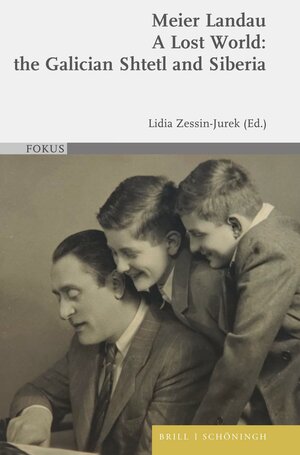The lost world of East European Jews meets the lost world of life under the Soviet rule. From the Galician shtetl of Mos´ciska (Mostyska)—now in Ukraine near the Polish border—the memoir follows a Jewish family through two World Wars, deportation to a labour settlement under the Soviet regime, through Central Asia, the Middle East, to America. These are the lost worlds that the author vividly brings to life. Holding onto Jewish tradition, surviving mass human rights violations. The vast majority of Polish Jews, who survived the Second World War, did so as refugees and deportees in the Soviet Union. Meier Landau and his family escaped the Germans from Kraków, but were deported by the Soviets from Lviv, along with thousands of other Polish—Catholic and Jewish—families. This text is a testament to the power of remembering—a poignant reading when war and refugees are present again where this real-life story unfolds.
“Expertly annotated and edited by Lidia Zessin-Jurek, Meier Landau’s painstakingly detailed memoir reconstructs an extraordinary odyssey of Polish Jewish life, death, and survival from the First World War through the Second. The collaboration between historian Zessin-Jurek, language editor Laura Garland and George Landau who lived this story as a child offers us a history still too little known: a complex evocative portrait of Jewish family life and communal organization from a Galician shtetl to harsh refuge from National Socialism in the Soviet Union and the extended transit experience in wartime Iran. We need more accounts like this one; we are lucky to now have this volume.”
Atina Grossmann Professor of History, Cooper Union, New York City
“Expertly annotated and edited by Lidia Zessin-Jurek, Meier Landau’s painstakingly detailed memoir reconstructs an extraordinary odyssey of Polish Jewish life, death, and survival from the First World War through the Second. The collaboration between historian Zessin-Jurek, language editor Laura Garland and George Landau who lived this story as a child offers us a history still too little known: a complex evocative portrait of Jewish family life and communal organization from a Galician shtetl to harsh refuge from National Socialism in the Soviet Union and the extended transit experience in wartime Iran. We need more accounts like this one; we are lucky to now have this volume.”
Atina Grossmann Professor of History, Cooper Union, New York City







